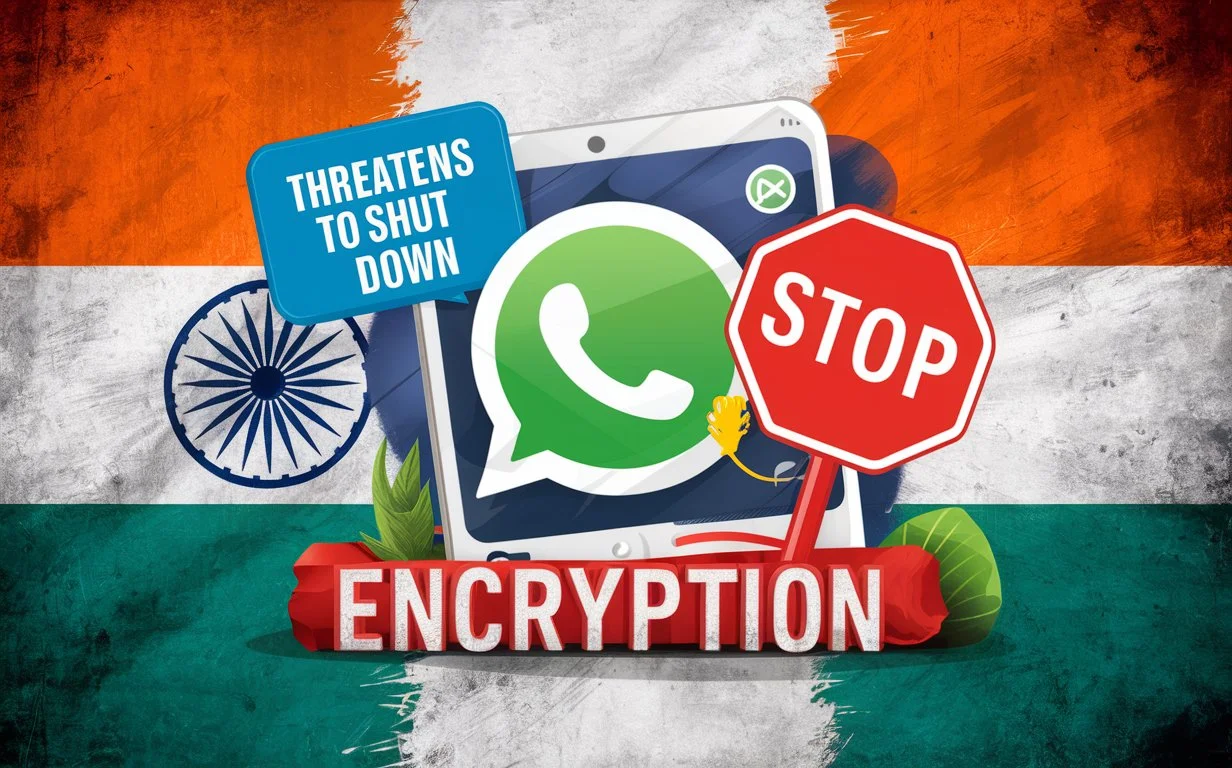WhatsApp, the ubiquitous messaging giant, is on the brink of a showdown with the Indian government over its insistence on compromising end-to-end encryption. This clash, manifested in a legal battle filed at the Delhi High Court, underscores a fundamental disagreement between WhatsApp and Indian authorities regarding user privacy and national security.
WhatsApp’s Stand Against India’s IT Rules 2021
At the heart of this conflict lies India’s IT Rules 2021, which aim to curb the proliferation of fake news and harmful content on social media platforms. One of the key provisions of these rules mandates social media intermediaries to identify the first originator of messages, a measure vehemently opposed by WhatsApp.
Reasons Behind WhatsApp’s Threat
WhatsApp’s reluctance to comply with India’s IT rules stems from its unwavering commitment to end-to-end encryption. This security feature ensures that only the sender and receiver of a message can access its contents, shielding user communications from prying eyes, including those of WhatsApp itself.
India’s IT Rules 2021
Enforced to combat the dissemination of misinformation and objectionable content, India’s IT Rules 2021 necessitate social media platforms to appoint compliance officers and furnish monthly compliance reports. However, the crux of the discord lies in the requirement to trace the origin of messages, a move WhatsApp perceives as compromising user privacy.
End-to-End Encryption
End-to-end encryption serves as the cornerstone of WhatsApp’s security framework, safeguarding user conversations from interception or surveillance. By refusing to compromise this encryption, WhatsApp upholds its users’ right to privacy, shielding them from unwarranted intrusion.
Debate Over User Privacy vs. Security
The impasse between WhatsApp and the Indian government underscores the perennial debate between user privacy and national security. While authorities argue that tracing message originators is essential for combating misinformation and safeguarding public safety, WhatsApp contends that compromising encryption undermines users’ fundamental rights.
Legal Battle Between WhatsApp and Indian Government
Represented by Tejas Karia, WhatsApp has taken a firm stance against the regulations, asserting that compliance would necessitate compromising the privacy of millions of users. On the other hand, the central government, represented by Kirtiman Singh, defends the regulations, citing the imperative to trace the origin of problematic content.
Delhi High Court’s Involvement
With the Delhi High Court slated to hear the petitions filed by WhatsApp and Meta on August 14, the legal battle has reached a critical juncture. The court’s decision will not only determine the fate of WhatsApp in India but also set a precedent for data privacy laws in the country.
The Future of WhatsApp in India
As the legal drama unfolds, the future of WhatsApp in India hangs in the balance. However, beyond this specific conflict lies a broader imperative for India to formulate robust data privacy laws that strike a balance between user privacy and national security.
Conclusion
The clash between WhatsApp and the Indian government underscores the complexities inherent in balancing user privacy and national security in the digital age. As the legal battle ensues, it serves as a stark reminder of the pressing need for comprehensive data privacy legislation to safeguard user rights and promote responsible digital citizenship.
FAQs:
- Will WhatsApp actually shut down in India?
- The outcome of the legal battle will determine WhatsApp’s future in India. However, the messaging giant’s threat underscores the gravity of the situation.
- Why is end-to-end encryption important for WhatsApp?
- End-to-end encryption ensures that only the sender and receiver can access message contents, safeguarding user privacy from external interference.
- What are the implications of compromising encryption?
- Compromising encryption undermines user privacy and could potentially expose sensitive communications to surveillance or interception.
- How does this conflict affect WhatsApp users in India?
- WhatsApp users in India may face uncertainty regarding the continuity of the service and concerns about the privacy of their communications.
- What steps can users take to protect their privacy on messaging platforms?
- Users can enhance their privacy by being mindful of the information they share online, using two-factor authentication, and staying informed about privacy policies and regulations.


